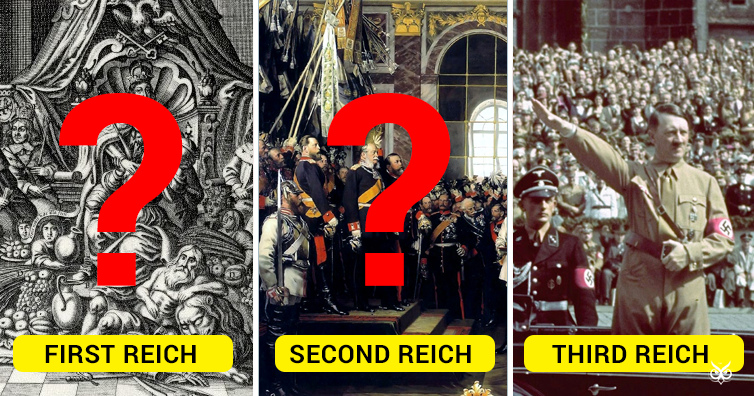
noun
- (with reference to Germany) empire; realm; nation.
- the German state, especially during the Nazi period.
noun
- Stephen MichaelSteve, born 1936, U.S. composer.
- Wil·helm [vil-helm] /ˈvɪl hɛlm/, 1897–1957, Austrian psychoanalyst in the U.S.
noun
- the Holy Roman Empire (First Reich)
- the Hohenzollern empire from 1871 to 1919 (Second Reich)
- the Weimar Republic from 1919 to 1933
- the Nazi dictatorship from 1933 to 1945 (Third Reich)
noun
- Steve . born 1936, US composer, whose works are characterized by the repetition and modification of small rhythmic motifs. His works include Drumming (1971), The Desert Music (1984), and City Life (1995)
- (German raiç) Wilhelm (ˈvɪlhɛlm). 1897–1957, Austrian psychologist, lived in the US. An ardent socialist and advocate of sexual freedom, he proclaimed a cosmic unity of all energy and built a machine (the orgone accumulator) to concentrate this energy on human beings. His books include The Function of the Orgasm (1927)
German, “kingdom, realm, state,” from Old High German rihhi, related to Old English rice, from Proto-Germanic *rikja “rule” (cf. Old Norse riki, Danish rige, Old Frisian and Middle Dutch rike, Dutch rijk, Gothic reiki), from PIE *reg- (1) “move in a straight line,” hence, “direct in a straight line, rule, guide” (see regal). Used in English from 1871-1945 to refer to “the German state, Germany.” Most notoriously in Third Reich (see third); there never was a First or Second in English usage.
 Liberal Dictionary English Dictionary
Liberal Dictionary English Dictionary